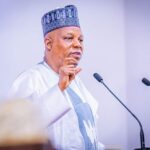This is not the first time efforts have been made towards amending the 1999 Constitution by the National Assembly. Even as the current attempt is ongoing, the interest it has attracted towards the reformation of the local government structure in Nigeria has remained unparalleled due to the action taken by the federal government towards restructuring the third tier of government.
In May, the federal government filed a suit seeking to alter the structure and operations of local governments in Nigeria in two significant ways.
The first is to safeguard the funds due to local governments from the federation account by preventing state governors from tampering with it; and the second is to ensure democracy thrives at the third-tier level of government by restraining governors from dissolving elected councils and replacing them with interim committees.
The two issues are quite significant due to the manner state governors have rendered the operation of the local governments and their intended autonomy as a tier of government ineffective.
- Why INEC should conduct all Nigeria’s elections, by Festus Okoye
- Why administration of LGs was better in 1999 – Ex-LG chairman
Under the current revenue allocation formula, the federal government receives 52.68 per cent of the country’s monthly revenue while the states get 26.72 per cent, and local governments are collectively allocated 20.60 as disbursed by the Federation Account Allocation Committee (FAAC).
But the 20.60 per cent meant for the local governments does not go directly to the local governments. It is paid into a joint account, the Joint Account Allocation Committee (JAAC) operated by states and local governments.
There are allegations, however, that governors have taken advantage of the JAAC to dip their hands into the funds meant for the exclusive use of local governments while appropriating the bulk of the money.
This, according to those familiar with local government administration, was not the practice during the military administration and early in the current democratic dispensation. Local governments were given their allocations directly.
A former chairman of Ado Local Government Area of Benue State, Chief Otse Otokpa, who served between 1999 and 2002, confirmed that during his tenure, local government councils were given their allocations directly; hence the chairmen could do much with it.
“Our cheques were coming straight from the Central Bank of Nigeria (CBN) at that time. We were given CBN cheques and it was paid directly to the local government account. When we came to the state capital, Makurdi for JAAC, we only came to discuss issues that state and local governments could finance jointly. But our money came directly to us and we did whatever we wanted with it as discussed by the council,” he said.
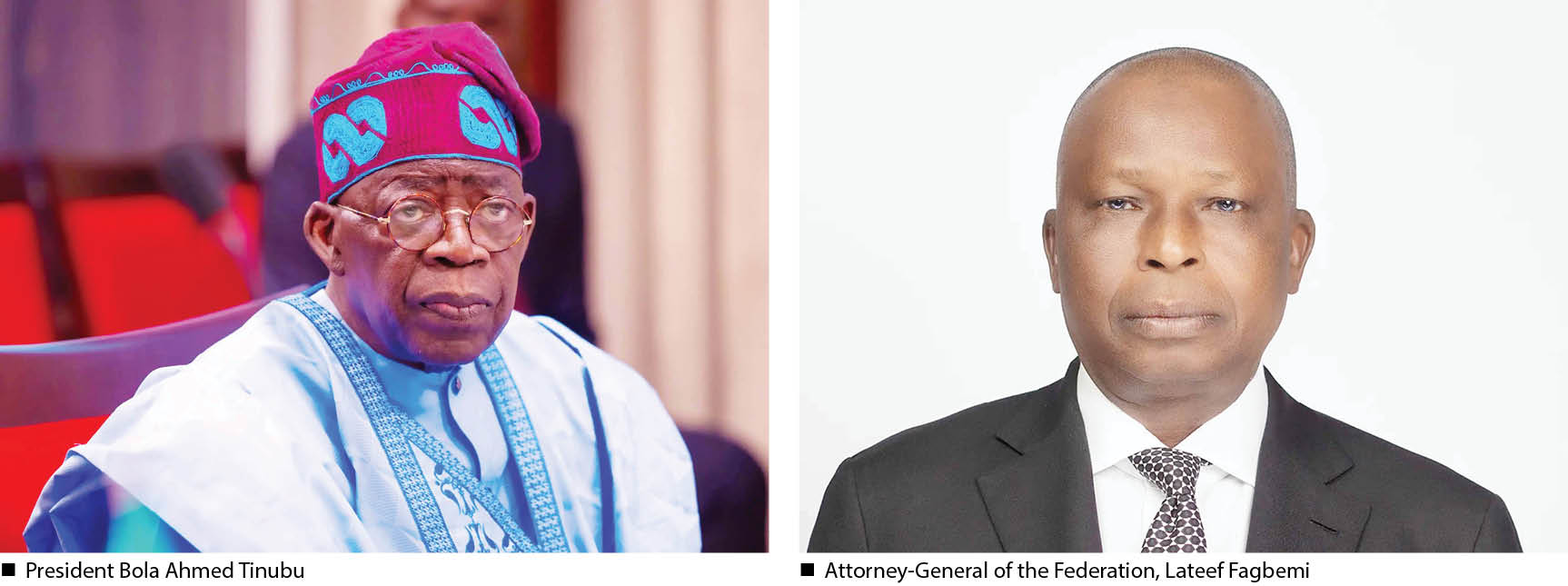
Along the line, however, governors started having access to the JAAC and have been accused of taking advantage of the transit route to tamper with local government funds.
The Supreme Court, on July 11, however, put paid to those practices while answering the prayers of the federal government by granting financial autonomy to the local governments and making it illegal for state governors to sack elected local government councils.
The judgement has been hailed across the country as positive due to its potential to deepen democracy and accelerate development at the grassroots through the freeing of funds directly by the councils and protecting the tenure of elected councils.
The Association of Local Governments of Nigeria (ALGON), through its national president, Mr Aminu Muazu Maifata, said it believes the implementation of the judgement would ensure accountability as people would be able to monitor allocations to local governments.
“We will channel those resources towards implementing laudable programmes, implementing projects and tackling challenges at the grassroots. We are ready for that and will not let our people down,” Maifata said.
The Peoples Democratic Party (PDP), through its Deputy National Publicity Secretary, Abdullahi Ibrahim, also said it supported the decision of the Supreme Court “because we believe it is time the local governments enjoy their subvention directly from the federation account.”
He added, “If we are truly in a democracy, it is expected that the federation is made up of three tiers of government – the federal, state and the local government. So, we see what has happened as a commendable development, and we are solidly behind the Supreme Court.”
The second issue is closely linked to the first and has to do with how most of the state governors, due to their interest in the affairs of local government councils, do not allow democracy to cascade to the third tier of government as they dissolve elected councils at will and appoint their lackeys in the name of caretaker committees.
Several interest groups, including political parties, civil society organisations and individuals have, since the pronouncement by the apex court, demanded for a total reform of the local governments, starting with its leadership selection process, which rests squarely with state governments.
Section 197 of the 1999 Constitution empowers the states, through the State Independent Electoral Commissions (SIECs) to organise local government elections at the local government level.
But like the JAAC, which is widely believed to have been abused by most state governors, the operations of the SIECs have also been hijacked by the governors, making them subservient to chief executive officers of various states.
Consequently, many have lost faith in local government elections, with the conviction that no true election can take place at that level once it is conducted by state governments.
A local government staff in Bauchi State, who does not want to be named, said, “Local government councils suffer the worst form of abuses; they are at the mercy of governors, who do as they wish with them.”

Push for INEC to conduct LG elections intensifies
The manner elected councils are dissolved at the whims and caprices of governors has, according to findings by Weekend Trust, rendered the third tier of government the most unstable as governors firmly believe they have the power to sack any local government council official they do not like and nothing would happen.
States that dissolved their local government council executives recently include Jigawa, which sacked the elected chairmen of the 27 local governments; Rivers, which appointed caretaker chairmen to take charge of the councils, following a political crisis, as well as Anambra, Plateau and Benue.
In many states, election into local councils is put at bay for several years, while the governors appoint caretaker committees made up of their cronies as chairpersons to oversee the affairs of the councils.
Currently, 21 states in the country are without duly elected local government chairmen and councillors, but under makeshift arrangements where the governors appointed interim committees to administer the councils.
This is in contravention of Section 7 of the 1999 Constitution, which stipulates that local governments be run by democratically elected officials.
Out of the 21 states with LG councils under interim administrations, 13 have commenced the process of election into their local councils.
In spite of the promise to hold elections in the local councils, however, not many are excited as they see the likelihood of the old pattern where the ruling party wins all the elective positions from the local government to the wards.
They blame this on the constitution of state electoral commissions, which are attached to the apron strings of governors.
In the recent local government elections conducted in Gombe State, the state’s Independent Electoral Commission (GOSIEC) declared the All Progressives Congress (APC) as winner of all the 11 chairmanship seats and 114 councillorship positions.
Only five parties participated in the election, as according to information gleaned by our correspondent, the others held back because they felt they stood no chance in a contest conducted by the SIEC, a body which leadership and members are appointed by the state government.
It is similar in most states where local government elections were conducted as opposition parties felt they stood no chance because all the instruments of the government would be deployed to ensure a total win by the ruling party.
In 2023, no political party, aside the PDP, fielded candidates for local government elections in Benue State, allowing the then ruling party to do as it wished, returning all its candidates in the 23 local governments as winners.
Weekend Trust observed that opposition parties only complain when they are at the receiving end, but where they are in power and it favours them, they laud such processes as credible.
While the PDP in Gombe is complaining because it is in the opposition, it is singing a different tune in Oyo State, where it is in power.
When the Oyo State Independent Electoral Commission (OYSIEC), at the conclusion of the local government election, announced the PDP as winning all the chairmanship seats in the 33 local government areas, it was the APC in the state that faulted the result, describing the council election as a sham capable of causing the state “untold disrepute.”
The situation has become so worrisome that a governor is considered magnanimous if he conceded a council or ward seat to an opposition party as it happened in Kaduna State under former Governor Nasir el-Rufai.
Many are of the opinion that when state governors appoint the chairmen and members of SIECs, it enables them to manipulate the process in favour of the ruling party.
This often leads to endless litigations, distrust and even sparks crises as was the case in Plateau State in 2008 when the conduct of election in Jos North Local Government Area led to a serious crisis that boiled for years, due to an allegation of manipulation of the process.
As a result of this, many have said that for the country to have credible local government elections, it is either the INEC takes over the exercise or another independent body be set up for that purpose.
To buttress their claim that the INEC would do a better job than the SIECs, supporters pointed to the outcome of the 1998 local government elections in the country conducted by the commission, in which many opposition parties won seats in various states. They also pointed at what has been happening in the Federal Capital Territory (FCT), where elections into the area councils are conducted by the INEC and at the end, different parties are declared winners.
During the 2022 area council election in the FCT, the PDP, for instance, won two chairmanship seats while the APC won two. The PDP won 43 councillorship seats while the APC won 19.
In 1998, even in states where the predominant party won wholesale, it was believed to be due to its popularity in those areas.
But some said this was possible because the elections were conducted under a military regime when there were no governors with partisan interests to influence the outcomes. Yet, some feel that things would not be as they are now if the INEC or another body takes over the responsibility of conducting local government elections.
Although the opposition goes to court in many instances, the governors either use their influence to delay the processes until the tenure elapses or refuse to comply with any court judgement that does not favour them.
The 1999 Constitution recognises state electoral commissions as the statutory bodies state governments can establish. The other two are the Judicial Service Commission and state assembly commissions.
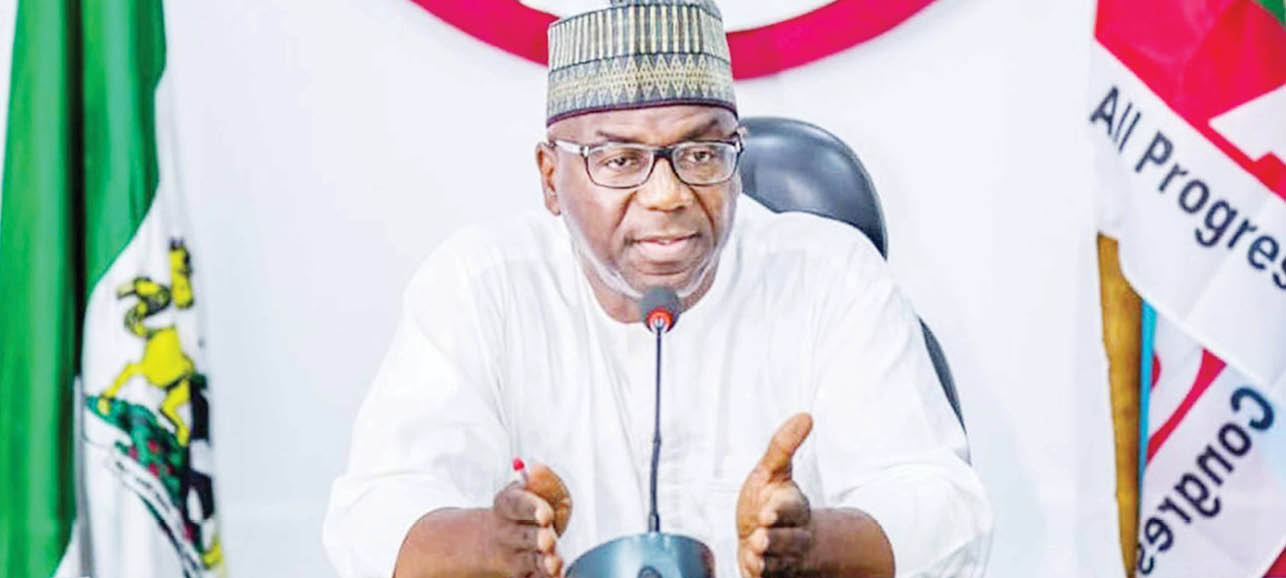
How LG election processes got mixed up
The military administration of Abdulsalami Abubakar, in December 1998, conducted election into the 774 local government councils and used it as a basis for registering political parties that would participate in subsequent elections that would culminate in the presidential election. That election, conducted by the INEC, was adjudged free and fair as it gave equal opportunities to all parties to contest.
The PDP, the then All Peoples Party (APP) and Alliance for Democracy (AD), which polled the highest number of votes, were registered to contest in the subsequent elections.
But according to those who participated in that election, problem started when the local government chairmen of that period realised that they were shortchanged in terms of the duration of their tenure, and decided to do something about it.
While other elective positions like those of the president, governors, national and state assemblies were assigned a four-year renewable tenure each, local government chairmen and councillors were given only three years.
The then council chairmen, under the Association of Local Governments of Nigeria (ALGON), who should have vacated their seats by 2002, decided to approach the National Assembly to amend what they considered the impropriety of assigning only three years to them. They asked the parliament to grant them four years so that they could be at par with other elective positions.
Since the Constitution places the local governments under state houses of assembly, the latter saw the move by ALGON as an affront on their constitutional responsibility and moved against it by challenging the right of the National Assembly to determine the tenure of local governments in the courts. ALGON
Naturally, governors backed the state assemblies, and when the suit succeeded, it created a lacuna when the tenure of local councils elapsed and state governors were encouraged to set up caretaker committees pending the conduct of elections.
This was confirmed in a television interview by Senator Olorunnimbe Mamora, who was the chairman of the Conference of Speakers of State Houses of Assembly at that time. He said, “We challenged it because it was like trying to usurp the powers of the state houses of assembly.
“They (local government chairmen) were asking for the extension of their tenure to four years in line with the state and the federal. That was the beginning.
“That was when he (Obasanjo) then persuaded us that each state should go and put in place a kind of stop-gap situation. That was what led to the state making laws for caretaker committees, which were supposed to be a temporary thing to take care of that lacuna; that is the tenure of the local governments finishing and the new one yet to be elected”, he said.
Consequently, many governors delayed the conduct of elections because it offered them many advantages, one of which is appointing their loyalists to head such interim committees. By appointing their loyalists into such positions, they are allowed untrammeled access to the finances of the local governments, while they use such appointees to secure their political interests at the grassroots.
Weekend Trust gathered that when governors went deep into adopting the caretaker option and found it to suit their purpose, the aberration became the norm, with most governors preferring to appoint officials for the councils rather than conduct elections.
This has made it difficult to have a uniform timeframe for LG elections throughout the country, while making it easy for governors to get away with any infraction concerning local government elections. In some states, governors even completed their tenure without bothering to call for elections at the local government level, thereby shutting the door against members of opposition parties from governance at grassroots level.
However, there are local governments where elections have not been able to hold due to security challenges, such as in Borno and parts of Yobe states.
These has added to the growing call for the dissolution of state electoral commissions and either bring them under the INEC or establish a new body charged with the responsibility of holding local government elections.
A human rights lawyer and former INEC official, Festus Okoye, recalled that as a member of the Electoral Reform Committee (the Justice Uwais Committee), the call for reform of local government elections was quite popular.
He said: “We toured the whole country and listened to and harvested the views of Nigerians, including politicians, civil society leaders, traditional and religious leaders and other critical stakeholders. The sentiments expressed then are the same sentiments still fueling agitations for the scrapping of the State Independent Electoral Commission. I served as a civil society delegate to the 2014 National Conference.”
Feasibility of LGs receiving their allocations directly
From the reactions of a cross section of Nigerians, the major hurdle towards the implementation of the judgement would be its clash with the Constitution.
Explaining that the only impediment lies with the Constitution, Chief Otokpa said, “The problem we have now is actually in the constitution because section 197, subsection 1(b) provides for the State Independent Electoral Commission (SIEC). And we see what is happening – in any state where a party rules, it wins all the seats – from councillorship to chairmanship.
“I am not a lawyer, but it seems that the Supreme Court judgement must be reviewed; they should consider the removal of section 197, subsection 1(b) of the constitution. As long as that section exists, it is unconstitutional to attain absolute freedom for the councils.
“Once it is removed, the issue of the JAAC will be resolved automatically. But as it is now, I believe that if the governors challenge it, the Supreme Court may be forced to rescind its decision”, he said.
Already, the governor of Oyo State, Seyi Makinde, has expressed reservations about the judgement, saying it has created a constitutional lacuna that would throw up different challenges at the local government level, and insisted that “It is not a silver bullet that will wash away” Nigeria’s problems.
He said: “The law is the law, and when there is a conflict, we should go to the court. But it behoves us to look for our own homegrown solutions that can ensure that we have transparency and that our people do not suffer. This is because when two elephants are fighting, it is the grass that will suffer.”
However, the APC in Oyo State views Makinde’s reaction differently. The party, through its publicity secretary, Olawale Sadare, accused the governor of lacking respect for constitutional democracy and the rule of law, saying he inaugurated the committee to enable him maintain the status quo as it concerned the joint account between states and local governments in the state.
“The governor has been fighting tooth and nail to promote an unpopular call for a reversal of the verdict, which has been described by most people as victory for the masses. Unfortunately for Governor Makinde, his recent actions have confirmed the allegation that he wants the dream of freeing the councils truncated so that he could continue to have his way”, said Sadare.
Due to these early challenges, there are fears that the governors may exploit the lacuna to insist on the JAAC system, until a constitutional amendment is affected.
Recalling how governors opposed the idea of a sovereign wealth fund during the Goodluck Jonathan administration, where it was suggested by the then minister of finance, Ngozi Okonjo-Iweala, that the excess money being made from the sale of crude be saved, there are fears that the Makinde challenge may be expanded to create a hurdle for allocations to be paid directly to the LGs.
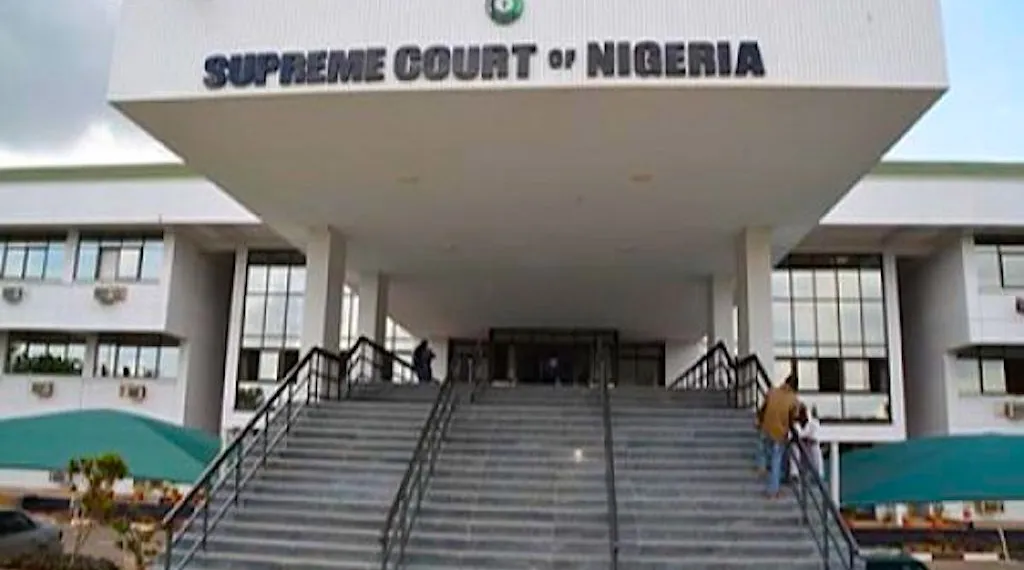
Hurdles to the implementation of the Supreme Court judgement
The INEC Chairman, Prof. Mahmood Yakubu, also agrees that the process would require engagement with the National Assembly for certain amendments to handle additional responsibilities.
He said, “Will the federal government fund the elections for states and local governments? Alternatively, there is a proposition for a new federal electoral commission for local government elections. Some argue against state electoral commissions conducting local government elections in the spirit of federalism but should improve their conduct.”
Also, Okoye believes that the judgement cannot be implemented until there is an extensive constitutional alteration. He said, “As the chairman of the INEC pointed out, there must be a discussion on funding and the mechanics of integration.
On the issue of local government elections, the ALGON president said it was ambivalent, in that the four-year tenure being demanded by the councils is yet to be settled.
Also, Dayo Akinlaja, a Senior Advocate of Nigeria (SAN), said that until there is an amendment to the Constitution, the legitimate authority to conduct elections at the local government level would be the state government.
“To that extent, the calls for state electoral commissions to be scrapped and replaced with the INEC, or the alleged move by the National Assembly to establish a commission to conduct elections for local councils cannot be in sync with the thrust and tenor of the extant Constitution,” he added.
But some do not align with this position, saying that INEC has too much on its hands already and maybe overburdened by such additional responsibility.
A member of staff in one of the state electoral commissions who does not want to be named said: “The INEC is currently conducting elections in 36 states and the federal capital, and now you want to add local government elections to it; how can it cope?
The chairman of the Kano State Independent Electoral Commission (KANSIEC), Professor Sani Lawal Malumfashi, also disagrees, saying the problem with state electoral commissions not getting it right lies with politicians.
He said: “Election officials don’t rig elections, politicians do. Those who rape democracy are the politicians. Who lures voters with money? Who snatches ballot boxes? Who gives out noodles or spaghetti to voters on election day?”
He stressed that in 2015, the National Assembly, governorship and state assembly elections conducted by the INEC in Kano were all won by the APC, yet the elections were adjudged as credible. He added that the APC won all the local government seats in 2014 because of the lack of popularity of the then president, Goodluck Jonathan. He dismissed the claim that SIECs cannot conduct credible elections.
Okoye, however, aligns with the thinking that SIECs cannot conduct credible elections, and added that it is wasteful to have 37 electoral management bodies in Nigeria.
He said: “It is rational, expeditious and smart to integrate the SIECs into one central election management body for the country. This will eliminate staff duplication and duplication of election technology and other election materials. It will improve and maintain standards and give hope to those who aspire for elective offices within the local government structure.”
On the fear that adding local government elections would be too burdensome for the INEC to bear, Prof. Yakubu, while acknowledging calls for the unbundling of the commission or creation of a new federal agency for conducting council polls, said the organisation could conduct local government elections, if provided with the necessary resources.
“The INEC can cope if the responsibility for the conduct of local government elections is transferred to it. Right now, we do national, state and local government elections.
“Our track record proves that we can do it. In the Federal Capital Territory, there are six area councils, 62 wards and councillorship elections”, he said.
A lecturer at the Bayero University, Kano, Dr Saidu Ahmad Dukawa, argued that achieving full local government autonomy would require having democratically elected officers who come in through a process which is free, fair and credible. He, however, said the attitude of the Nigerian political elite was the main problem.
“If on one hand state electoral commissions conduct the elections, governors will continue to manipulate the process. But on the other hand, if a central electoral commission (under whatever nomenclature) is to conduct the elections, the federal government may manipulate the process.
“So, a lot needs to be done to actualise free and fair local government elections. This will include wide stakeholders’ involvement and participation,” he said.
Way out
Otokpa said that with his experience as a former local government chairman, Section 197 should be reviewed, allowing for subsequent actions.
Currently, governors have full control. According to the Constitution, the funds must be paid to the states unless that section is repealed.
Also, the ALGON president said he did not envisage any challenge for now because people had become more aware and enlightened, while state houses of assembly are ready because everybody wants to see that local governments in the country are fully functional and able to carry out all their constitutional responsibilities efficiently. He said, “Everyone in the country wants to see a total restoration of local governments as they used to be during the 1970s, 1980s and in the early 1990s. So, I don’t think there will be any challenge that cannot be surmounted.”
How the legal and political hurdles to the faithful implementation of the recent Supreme Court verdict on LG autonomy are eliminated is a matter that is left to be seen in the weeks or months to come.
Contribution from: Baba Martins
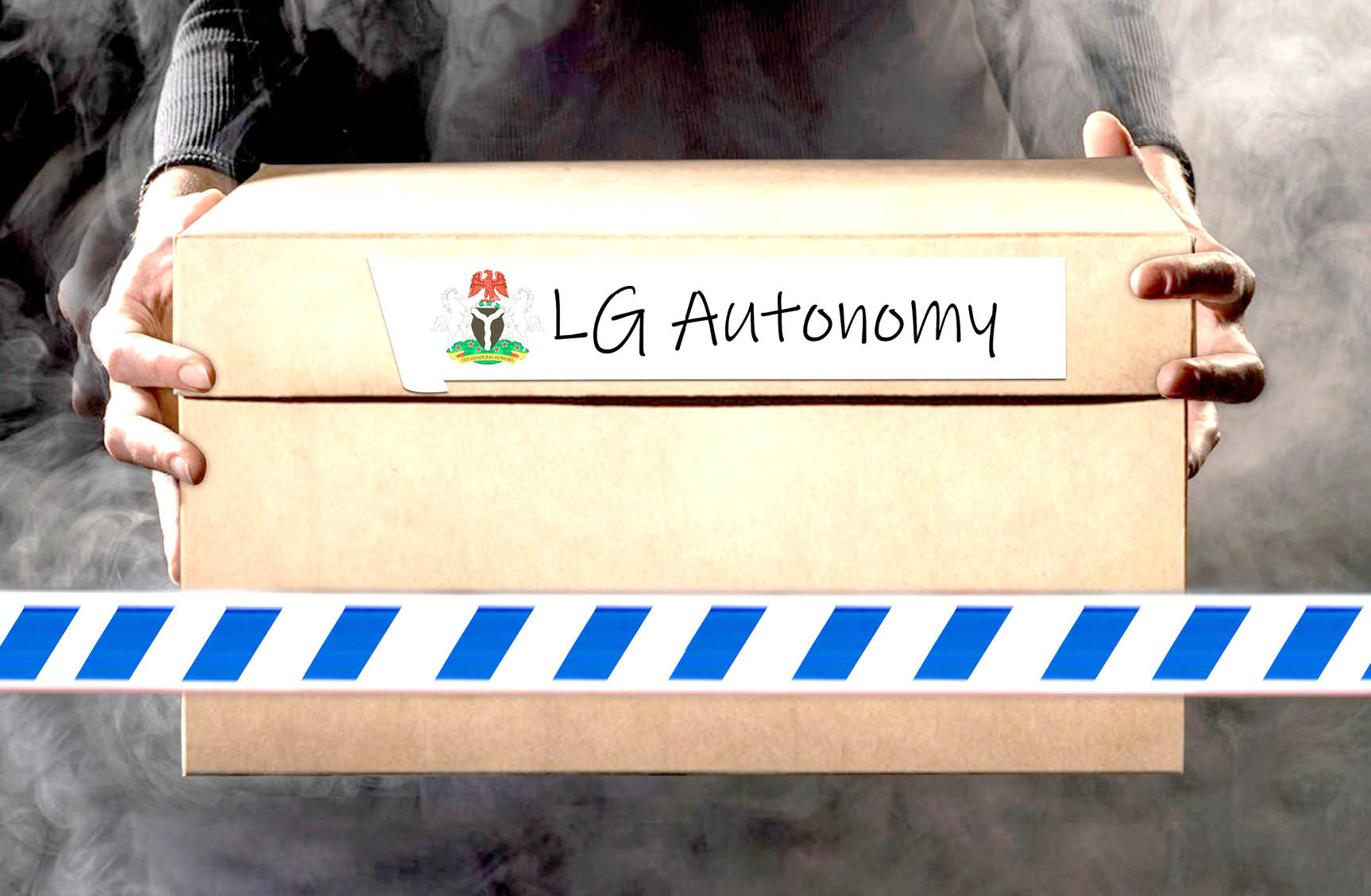
 Join Daily Trust WhatsApp Community For Quick Access To News and Happenings Around You.
Join Daily Trust WhatsApp Community For Quick Access To News and Happenings Around You.